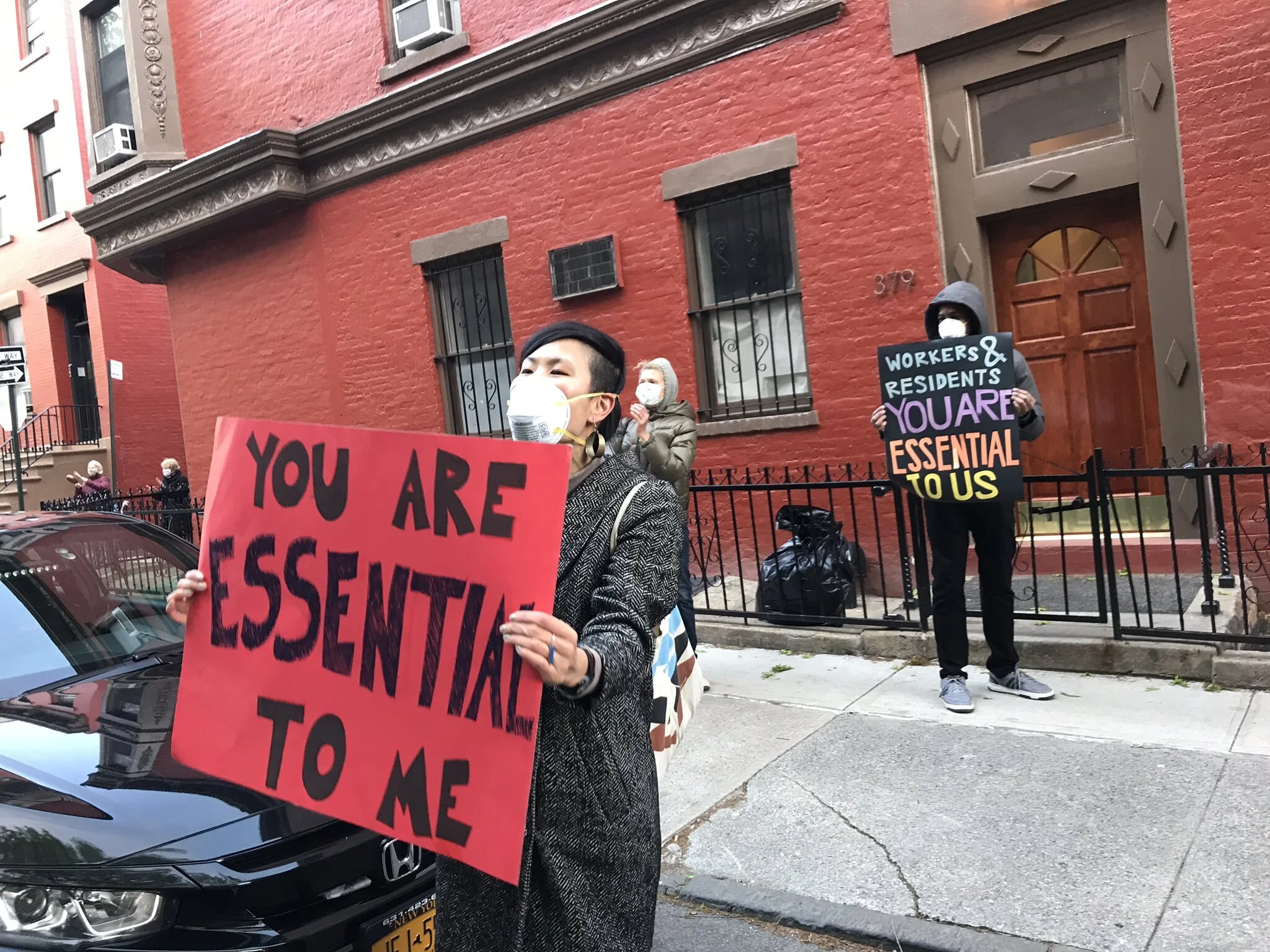Pass the New York Health Act to ensure that all New Yorkers receive the care they need, when they need it.
For far too many New Yorkers, the care we need is out of reach. It’s time for our state to provide quality, affordable care at home for all those who need it — especially older adults and people with disabilities who often depend on these essential services to live full and independent lives.
We know that providing home care to older adults and people with disabilities works. In New York, Medicaid and the Expanded In-home Services for the Elderly Program (EISEP) are essential lifelines for those who otherwise would not be able to afford the home care they need.
It’s time to build on Medicaid and EISEP so that all New Yorkers who require home care and other community-based long term care services can have peace of mind in knowing they can safely, comfortably, and independently live and work in their communities. Thanks to the leadership of seniors, people with disabilities, and caregivers, the New York Health Act now includes a universal long-term care benefit.
Invest in the Future of Care
According to PHI, by 2026, New York will see a 33 percent growth in need for home health aides and there will be over 600,000 job openings for home health and personal care aides. Direct care workers have great influence over the quality of care and quality of life of our loved ones. Yet their pay is extremely low - according to the NY Department of Labor, the annual salary for home care aides is $24,810 while the cost of living in New York is 20 percent above the national average. In addition to wages, problems with transportation, especially in rural parts of the state, uneven and erratic scheduling, and lack of benefits contribute to the challenge of recruiting and retaining workers. If we don’t improve the quality of home care jobs, the workforce shortage will worsen, causing consumers to resort to institutional care — which is often not the preferred setting and is more expensive.
We must invest in the home care workforce, which will help ensure that workers can respond to the care crisis and provide quality care while taking care of themselves and their families. Currently, the state invests billions in economic development funds with questionable returns regarding jobs or benefits to those living in the state; using those funds to invest in the recruitment and retention of a qualified home care workforce, including paid family and friends acting as caregivers, would alleviate this workforce crisis. We must look creatively at our economic development dollars and invest in jobs that will lift up women and people of color while also improving the quality of life for older adults and people with disabilities. Money invested in the home care workforce is spent in local communities, and provides an important service in our communities.
Essential programs must be expanded and strengthened, not cut.
In a time when Republican leaders in DC are attacking our social safety net, our local elected officials must protect the supports that allow seniors and people with disabilities — our neighbors, our friends, our family members — to stay healthy and live with dignity.
Our work includes:
Preserving the Affordable Care Act;
Preventing cuts to or privatization of Medicare and Medicaid; and
Working with our New York State representatives to protect and expand our long term care options.
On December 6, members of the NY Caring Majority Coalition testified at a hearing called by Assembly Member Donna Lupardo, the Chair of the Assembly Standing Committee on Aging.
In the hearing, Coalition testimony covered the broad range of needs for older New Yorkers, but emphasized the opportunity in front of us to clear the waiting lists for in-home care provided by New York's Expanded In-home Services for the Elderly (EISEP) program.
We have linked PDFs of the testimony given by three of our coalition members. Click their names and you will be able to view and download what they said.
Bobbie Sackman, Member Leader, Jews for Economic and Racial Justice
Karla Lawrence, Leader, National Domestic Workers Alliance
Ilana Berger, Executive Director, Hand in Hand, The Domestic Employers Network
